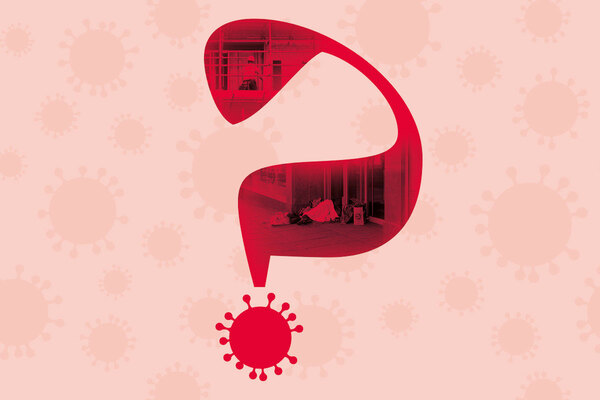You are viewing 1 of your 1 free articles
 Pat Turnbull
Pat TurnbullCOVID-19 has exposed the lethal consequences of England’s inadequate housing provision
Pressure on incomes and worries about security of tenure undermines the lockdown and puts everyone at risk. This should be a wake-up call, writes Pat Turnbull
The London Tenants Federation (LTF) has been highlighting for decades the snowballing chasm between social housing need and delivery in the capital, the consequences of which are hard enough to live with in ‘normal’ times.
COVID-19 has now exposed the lethal consequences of England’s drastically inadequate housing provision.
In March, LTF and its fellow members of the London Housing Panel called for a national government response to coronavirus that would give local authorities the resources to prevent avoidable deaths and suffering.
Fifteen per cent of social renters and 12% of private renters in London are overcrowded. We warned that this could impact not only on mental health and well-being, but also on families’ ability to protect themselves.
Research by the New Policy Institute has now found that 70% more coronavirus cases occurred in England’s five most overcrowded neighbourhoods than in the five least crowded.
Overcrowding is considered one possible factor behind the fact that people from ethnic minorities, who are disproportionately likely to be overcrowded, have also been harder hit by the virus.
In temporary accommodation, separate households, including those with children and underlying health conditions, often share kitchen and bathroom facilities.
In London there are 56,000 households in temporary accommodation. The London Housing Panel called for councils to be equipped to identify those most vulnerable and provide them with suitable self-contained housing.
To their credit, some boroughs have used their own initiative to do this. Though in one instance, this was done by rehousing families in blocks with systemic safety issues.
We joined the chorus calling for the five-week wait for Universal Credit to be scrapped. This has not happened either.
And the government’s eviction ban does nothing to reassure renters worried about arrears and evictions once it is lifted.
Despite the mortgage holiday, some leaseholders and shared owners may be struggling to pay high service charges and rents.
This pressure on incomes and security of tenure undermines the lockdown and puts everyone at risk.
It has been compounded by the government’s reluctance to close non-essential workplaces and failure to provide adequate protective gear, testing and tracking.
Social housing tenants, disproportionately likely to be overcrowded, are also disproportionately likely to be key workers, driving the buses or commuting to essential work as carers, shop workers, cleaners and NHS staff. Not only do they put their own lives at risk during the day, but they bring that risk back to overcrowded homes.
Most devastating is seeing reports of new rough sleepers a month after the government’s unfunded deadline for councils to house all rough sleepers.
One homeless man with coronavirus symptoms was left sleeping on London buses after being told by a local authority that he was ineligible for support due to his immigration status.
This is why the London Housing Panel called for a removal of legal barriers, so anyone at risk of homelessness could be found suitable accommodation, including those ‘without recourse to public funds’.
The government’s failure to do so is first and foremost a failure of humanity, but it is also quite obviously counterproductive.
We will only know after the pandemic is over what the true cost has been to hundreds of thousands of people in inadequate housing and with low incomes.
But we know already that government priorities need to change fast.
“Not only do key workers put their own lives at risk during the day, but they bring that risk back to overcrowded homes”
People need permanent well-paid jobs, and must not have to rely on zero-hours contracts and self-employment. The NHS must be fully funded, as must councils, so that they can protect essential services and are not tempted, as they are now, to recoup missing funding through speculative housing ventures which don’t meet need and often result in a net loss of social housing.
LTF has consistently argued that we need an ambitious programme of government investment in high-quality social rented housing, including family sized housing. There should be no more subsidies for sale, which just inflate house prices and private rents.
We shouldn’t need to keep telling the government what is needed. The evidence has been there, the solutions have been there and the money (surprise, surprise) has been there the whole time.
Back when he was mayor of London and speaking at an event in Barking and Dagenham, prime minister Boris Johnson put it best: “The only long-term solution is to build more social housing and that is what we are determined to do.”
If only he had followed through with that determination.
Pat Turnbull, representative, London Tenants Federation











